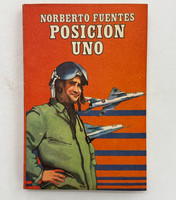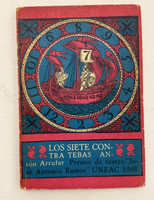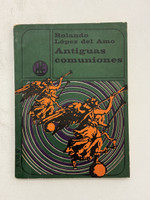- Travel
-
Exhibits
- José Fuster
- La Portada Cubana
- Immortal Cuba: Artists Take on Their Heroes
- Seattle Poster Exhibit
- Sandra Dooley & Alejandrina Cué
- The Art of Wayacón
- Cuban Folk Art
- Cuba In Black And White
- 25 Years of Cuban Art Space
- Summer Folk Art Expo
- ¡SPRING AWAKENING FROM CUBA!
- Celebrating The Art Of Cuban Women
- Celebrating Paper, Affordable Art from Cuba
- Art of the Revolution
- Outsider Art
- Lost and Found
- En la lucha: Celebrating Cuban Women and Their Art
- Cuban Art Stash
- 100 Fires: 5 Cienfuegos Artists' Work on Paper
- Waya + Monte! Magic Realism in Cienfuegos
- Viva Cuba Viva! Poster Show
- Cultivando Sueños
- Black Lives Matter in Cuba Jan 9-March 27
- Leandro Soto: Crónicas visuales
- Cuban Canvas
-
Archive
- Global Reflection 2018: Spirit and Community
- Exhibit in the cloud: Contemporary Works on Paper
- MADE IN CUBA! MINNEAPOLIS EXHIBIT
- Cuban Posters and Photography from CCS collection
- AUTUMN SALE! Sept/Oct 2017
- SPRING ARTS AND CRAFT SALE
- Vuelo Directo/Non Stop: Alberto & Alejandro Lescay
- The Many Faces of Fidel
- Somos
- Made in Cuba!
- The US empire in Cuban graphics
- Made in Cuba/Seattle exhibit
- Entre Nos
- Looking Back
- Cuban Art Space
- Membership/Donate
- About Us
- Cuba News
-
El Justo Tiempo Humano (The Just Human Time) represents Heberto Padilla's second poetry collection and captures a crucial moment in Cuban revolutionary culture before the poet became embroiled in one of the most significant intellectual controversies of the revolutionary period. First published in 1962 and reprinted in 1964, this collection gathers poems Padilla wrote between 1953 and 1961 across different countries during his years as an emigrant and his return to revolutionary Cuba.
The cover design features an exquisite botanical illustration rendered in luminous lime-green ink against a deep teal background, depicting an intricately detailed tree with varied foliage including ferns, palms, flowering branches, and delicate leaves. The woodcut-style illustration evokes both scientific botanical engravings and the lush tropical vegetation of Cuba, while the vibrant two-color printing creates visual depth through the interplay of organic forms. This imagery resonates with the book's title poem "El Árbol" (The Tree), which provides the collection's augural closing strophes.
Padilla (born 1932) began his literary career at sixteen with Las rosas audaces (1948) published by Editorial Los Nuevos. In 1949 he emigrated to the United States, where he worked various jobs from laborer to Spanish instructor at the Berlitz School in New York. Returning to Cuba in 1959 after the revolution's triumph, he became a journalist for the newspaper Revolución and its influential literary supplement Lunes, then served as chief of correspondents in London for Prensa Latina (1960) and as USSR correspondent (1962).
The poems in this collection document what Padilla called "the just human time" rather than metaphysical abstractions—a poetic vision encompassing the abandonment and anguish of his generation, from the poem "Dones" through the hopeful vision of "El Árbol." These are poems, as the author notes, that "were born in different countries and at different dates," salvaged from manuscripts that couldn't be published during the period when Cuba lacked established publishers. The collection represents one of the important early contributions to Cuban revolutionary poetry, published before the 1971 "Padilla Affair" when the poet's arrest and forced public confession created an international controversy that fractured intellectual support for the Cuban Revolution.
-
-
Discover More at the Center for Cuban Studies

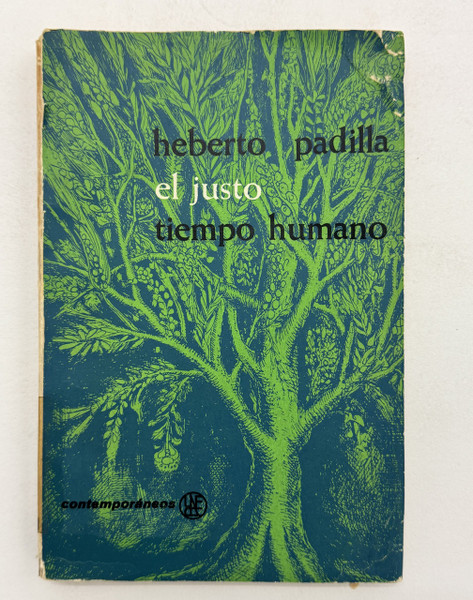

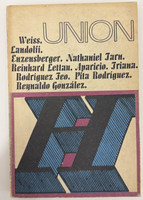
![Unión de Escritores y Artistas de Cuba / UNEAC - Contemporáneos series (cover designer: Cecilia Guerra, design: Darío Mora, author: Eliseo Diego), "Versiones," [1960s]. Offset print, book.](https://cdn10.bigcommerce.com/s-ufzvo/products/5897/images/6480/IMG_9365__71401.1761520962.200.200.jpg?c=2)
